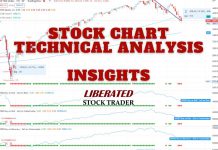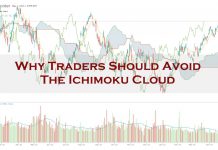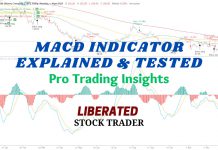Chart Indicator Research
Chart indicators are tools traders use to attempt to predict the future direction of a stock’s price. They are used to analyze historical data and trends, such as price, volume, and momentum, so traders can decide which stocks to buy or sell.
Our research provides a unique analysis of the reliability, success rates, and how to trade the most important stock chart indicators.
Top 4 Best Momentum Indicators Explained & Tested
In technical analysis, momentum indicators help traders identify the strength and direction of a stock's price. We explain and test three popular momentum indicators for reliability.
10 Best Free TradingView Indicators & How to Trade Them!
Our testing shows the best TradingView indicators for advanced analysis are Volume Profile HD, VWAP, Supertrend, ATR, Relative Volatility, and RSI. TradingView's candlestick and chart pattern recognition also improve trading outcomes.
Does Ichimoku Cloud Work? Success Rates & Settings Tested
The Ichimoku test results are a dismal 10% win rate, underperforming a buy-and-hold strategy 90% of the time. The Ichimoku indicator is a poor choice for traders.
Volume Indicator: How Pro Stock Market Analysts Use It
Stock volume measures the number of shares traded and indicates market strength. Rising markets with increasing volume are viewed as bullish, and falling prices on higher volume are bearish.
I Tested 606,422 MACD Indicator Trades: Shocking Results
MACD is a trend-following momentum indicator used to identify price trends. We conducted 606,422 test trades to find the best settings and trading strategies.
Stochastic Oscillator Explained: Best Strategy & Settings Tested
The Stochastic Oscillator momentum indicator compares an asset's closing price to a range of its previous prices. It oscillates between 0 and 100; below 20 indicates oversold, and above 80 suggests an overbought market.




